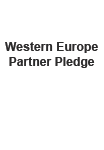In an increasingly competitive market, personalization has become a crucial element for standing out and shining among the crowd.
In this article, we will delve into the significance of personalization in a company's sales strategies, uncovering how this practice not only strengthens customer relationships but also significantly boosts sales.
Let's explore in detail how to effectively implement personalization to achieve positive and lasting outcomes in today's business world.

The Importance of Personalization
Personalization goes beyond simply knowing the names of customers; it extends much further by creating unique experiences tailored to the individual needs of each one. To achieve this effectively, it's crucial to thoroughly understand customers, their preferences, past behaviors, and current needs.
By offering a personalised customer experience, companies can not only foster greater engagement and loyalty from customers but also significantly increase sales and encourage long-term retention. The key lies in authentically connecting with each customer, demonstrating that their individuality is understood and valued. This emotional connection forms the foundation for building strong and lasting relationships with customers, benefiting both the company and the customer.
Finally, the power of AI in personalisation cannot be ignored.
Are you interested in enhancing your knowledge of customer segmentation? Download our free guide "Kale Tips: Mastering Customer Segmentation" and discover how to segment customers more effectively:
Data Collection for Personalization
To gather relevant data about customers and effectively implement personalization in sales strategies, it's essential to delve into aspects beyond simply knowing their name.
It's necessary to delve into details such as their purchase preferences, website browsing habits, past interactions with the brand, and their current needs.
This detailed information will allow the company to create personalized experiences that truly connect uniquely with each customer, thereby strengthening ties with them and significantly increasing sales opportunities.
By gathering this detailed information, the company will be able to create personalized experiences that truly connect with each customer uniquely. The more information you have about customers, the more accurate and effective the personalization will be, allowing you to strengthen ties with them and significantly increase sales.
This personalized connection not only drives sales but also creates a satisfying experience for the customer, demonstrating that the company values their individuality and is committed to meeting their unique needs.
With each personalized interaction, the customer relationship is strengthened, fostering long-term loyalty and ensuring sustainable growth in the current competitive market.
Customer Segmentation
Once the data is collected, it's crucial to define customer segments with similar characteristics and needs in order to effectively tailor the company's messages and offers.
This customer segmentation allows for the customization of communication strategies based on each group's preferences. For example, while one customer segment may show interest in receiving email offers, another segment may prefer to be contacted through personalized messages on social media.
It's also important to note that there are different types of customer segmentation.
This differentiation in communication ensures that each customer receives information in a relevant and engaging manner, thereby improving each individual's experience and increasing conversion chances.
Crafting Personalized Customer Experiences
With the information gathered and customer segments identified, companies can create personalized customer experiences at every stage of the customer journey. From the moment a customer first interacts with the brand to post-purchase, each touchpoint can be an opportunity to personalize the experience and strengthen the relationship.
Personalization isn't just about sending emails with the customer's name; it's about creating a whole content marketing strategy delivering relevant content tailored to their interests and specific needs. This may include product recommendations based on past purchases, customized discounts based on browsing history, or even personalized follow-up messages to ensure a seamless and satisfactory experience.
Moreover, creating landing pages and special offers tailored to each customer segment can make a difference in conversion and retention. By showing each customer that the company understands their individual needs and is willing to adapt to them, an emotional connection is established that goes beyond mere commercial transaction.
Ultimately, personalization at every stage of the customer journey not only enhances the customer experience but also drives sales and strengthens long-term loyalty. It's a powerful strategy that can make a difference in an increasingly competitive market.
Automating Personalization
To efficiently manage personalization across large volumes of customers, many companies turn to marketing automation. The use of marketing automation tools allows companies to send personalized messages at the right time without the need for constant manual intervention. This ensures a consistent and personalized experience for each customer, regardless of the company's size or the number of customers.
Automation not only streamlines the personalization process but also ensures a quick and timely response to each customer's individual needs. By using automated systems to send personalized messages, companies can maintain constant communication with their customers, delivering relevant content at the right moment. This not only enhances the customer experience but also increases the efficiency of sales strategies, allowing companies to reach a larger number of customers on a personalized level.
Furthermore, automating personalization enables companies to scale their marketing efforts without compromising the quality of the customer experience. By being able to send personalized messages to large volumes of customers simultaneously, companies can maximize their reach and increase conversion opportunities. This ability to reach a broad audience on a personalized level is crucial in a competitive market where differentiation is key to standing out from the crowd.
Measuring and Optimizing
Once personalization strategies are implemented, it's crucial to measure their effectiveness and make adjustments as needed. This involves not only tracking metrics such as email open rates, click-through rates, and conversion rates but also interpreting the results to identify areas for improvement and continuously optimize sales strategies.
By carefully analyzing these metrics, companies can better understand the impact of personalization on their sales and customer satisfaction. This allows them to make informed decisions and adapt their strategies to maximize results and deliver even more personalized and effective experiences. Constant feedback through measurement and optimization is essential to staying competitive in an ever-evolving market.
Want to expand your knowledge of customer segmentation? Download our free guide "Kale Tips: Mastering Customer Segmentation" and discover how to improve your segmentation strategies for more effective results.
Conclusion
In summary, personalization is a powerful tool that can make a significant impact on a company's sales strategies. By deeply understanding customers, segmenting them into groups with similar characteristics, and creating personalized experiences at every stage of the customer journey, companies can drive greater engagement, loyalty, and ultimately, sales. By investing in personalization strategies and continuously optimizing their effectiveness, companies can stay competitive in an ever-evolving market and secure long-term success.




